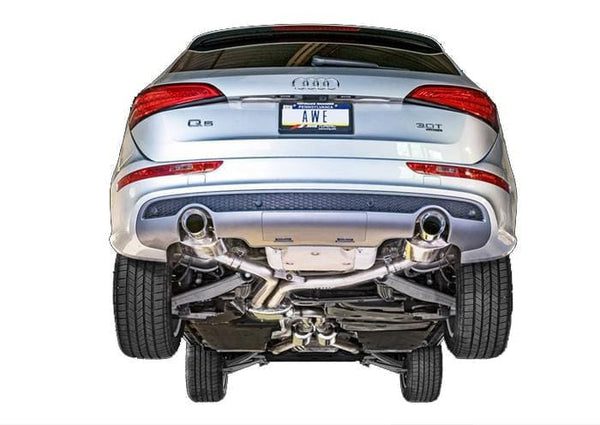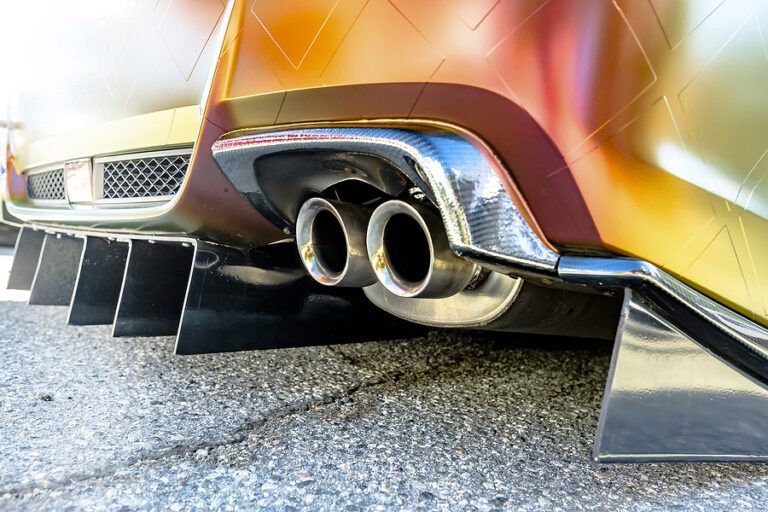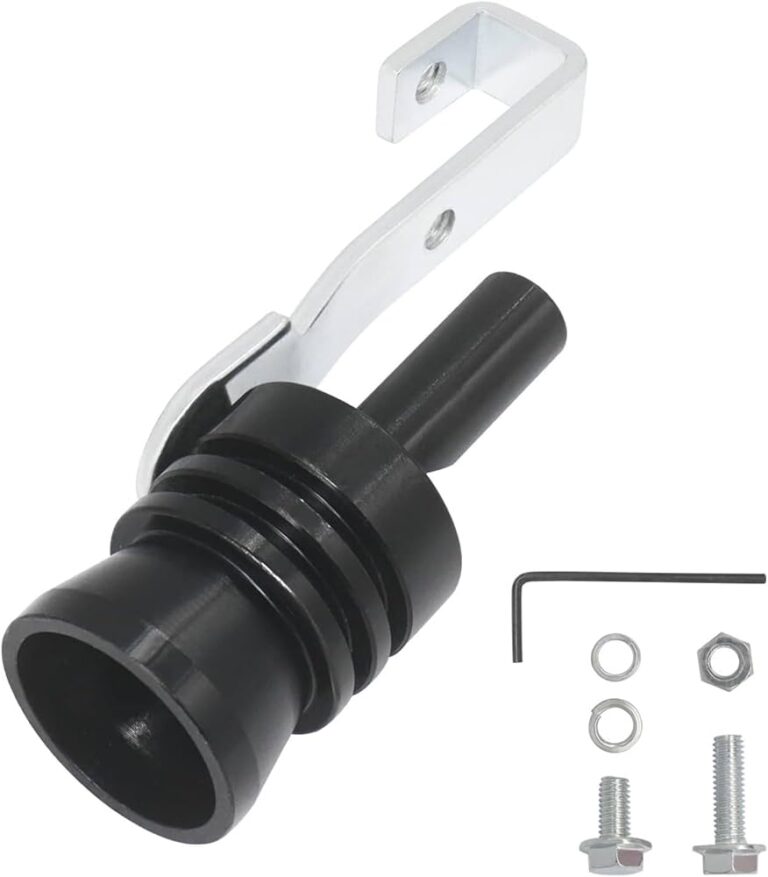Unlocking the Power: What Does the Resonator Do in a Car?
The resonator in a car helps to reduce noise and vibrations in the exhaust system. It is a chamber that works as a sort of acoustic filter, smoothing out the sound waves produced by the engine and exhaust gases.
By doing so, it enhances the overall driving experience by reducing excessive noise and creating a more pleasant sound quality. In addition to this primary function, the resonator can also impact the performance of the vehicle by improving exhaust flow and minimizing backpressure.
Understanding the role of the resonator in a car is crucial for enthusiasts who want to optimize their vehicle’s exhaust system for both sound and performance.
What Is A Resonator?
A resonator is an integral component of a car’s exhaust system. It is designed to reduce exhaust noise and enhance engine performance. The main function of a resonator is to cancel out or dampen certain frequencies of sound produced by the engine as part of the exhaust gases flow through the exhaust system. By doing so, it helps in reducing overall noise levels and controlling the sound quality of the exhaust system.
A resonator is typically positioned along the exhaust system, between the catalytic converter and the muffler. It consists of a hollow chamber with an inlet and an outlet. The chamber is filled with sound-absorbing materials, such as fiberglass or steel wool, which help in dissipating the sound waves produced by the engine. The resonator also helps in minimizing backpressure in the exhaust system, which can improve engine performance by allowing the engine to expel exhaust gases more efficiently.
In addition to its noise reduction and performance-enhancing capabilities, a resonator also plays a crucial role in controlling the sound produced by the exhaust system. It can be tuned to produce a desired sound quality, giving the car a distinctive and pleasing exhaust note. This is particularly important for performance cars, where the sound of the engine is considered an important aspect of the driving experience.
Types Of Resonators
htmlResonators are an integral part of a car’s exhaust system, responsible for tuning and shaping the sound produced by the engine. Different types of resonators are available in cars, each with its own characteristics and effects.
Chambered resonators, also known as multi-chambered or baffled resonators, use multiple chambers and perforated pipes to reflect sound waves and produce a deep, throaty exhaust note. They are popular among car enthusiasts looking for a louder and more aggressive sound. However, they may slightly restrict exhaust flow, which could potentially affect performance.
Straight-through resonators, as the name suggests, allow exhaust gases to flow straight through without significant obstructions. They are generally less restrictive than chambered resonators, leading to improved performance. However, they may produce a milder and more subtle sound compared to chambered resonators.
| Resonator Type | Pros | Cons |
|---|---|---|
| Chambered | – Deep, aggressive sound – Popular among car enthusiasts |
– Slightly restricts exhaust flow |
| Straight-through | – Improved performance – Less restrictive |
– Milder, subtle sound |
Hybrid resonators combine features of both chambered and straight-through designs, aiming to balance sound and performance. They offer a compromise between the two extremes, providing a good blend of both a rich exhaust note and improved flow. It’s important to note that the specific design and construction of a resonator can greatly impact the overall sound and performance, so it’s recommended to consider the specific requirements and preferences when selecting a resonator for a car.
Benefits Of A Resonator
Benefits of a Resonator:
A resonator in a car serves several important functions that contribute to the overall performance and experience of the vehicle.
- Enhancing exhaust flow and reducing backpressure: The resonator is designed to optimize the exhaust flow by breaking up the sound waves and reducing backpressure. By doing so, it helps the engine breathe more efficiently, resulting in improved performance and fuel economy.
- Reducing noise levels and improving sound quality: One of the primary purposes of a resonator is to reduce the noise produced by the exhaust system. It acts as a muffler, silencing the exhaust note and creating a smoother, more pleasing sound.
- Increasing horsepower and torque: By improving the exhaust flow, a resonator can enhance the engine’s performance, leading to increased horsepower and torque. This can result in improved acceleration and overall driving dynamics.
- Minimizing drone and resonance in the cabin: A resonator helps minimize the drone and resonance that can occur inside the cabin, especially at certain RPM ranges. This leads to a more enjoyable and comfortable driving experience, without any annoying vibrations or noise.
Overall, the resonator plays a crucial role in maintaining optimal exhaust system performance, reducing noise levels, and enhancing the driving experience.
Factors To Consider While Choosing A Resonator
Choosing the right resonator for your car is important in order to achieve the desired sound and performance. Understanding your vehicle’s specific needs and goals is the first step in this process. Different cars may require different types of resonators, depending on factors such as engine size and desired sound level.
When it comes to resonator selection, determining the optimal resonator size and design is crucial. A resonator that is too large or too small can affect the performance of your car’s exhaust system. It is important to consult with a professional or refer to your vehicle’s specifications to find the right size and design.
Another factor to consider is the material used in resonator construction. Stainless steel is a popular choice due to its durability and resistance to corrosion. However, there are other materials available, such as aluminized steel and titanium, each with its own benefits and drawbacks.
Finally, it is essential to ensure that the chosen resonator is compatible with other aftermarket exhaust components that you may have installed. The resonator should work well with the muffler, headers, and any other components in your exhaust system to achieve optimal sound and performance.
Installation And Maintenance Of Resonators
The installation and maintenance of a resonator in a car can significantly impact its performance. When it comes to installation, there are two options: professional installation or a DIY approach. Both methods have their pros and cons.
Professional Installation Vs. Diy Installation
Professional installation ensures that the resonator is correctly fitted, minimizing any potential issues. However, it can be expensive. On the other hand, a DIY installation can save money, but it requires careful attention to detail and some technical knowledge.
Steps Involved In Installing A Resonator
The installation process involves several steps. Firstly, identify the ideal location for the resonator, considering factors like clearance and accessibility. Then, secure the resonator using appropriate brackets. Make sure to connect all relevant pipes and hoses, taking care with the positioning. Finally, double-check all connections are secure using hose clamps.
Common Troubleshooting And Maintenance Tips For Resonators
Maintaining a resonator is crucial for optimal car performance. Regularly inspect the resonator for any signs of damage or corrosion. Check for leaks and ensure all connections are tight. Cleaning the resonator periodically can also help maintain its functionality. If any issues arise, consult a professional for further inspection and repair.

Credit: www.fastcar.co.uk
Frequently Asked Questions Of What Does The Resonator Do In A Car
Is It Safe To Drive Without A Resonator?
Yes, it is safe to drive without a resonator. The resonator is a component in a vehicle’s exhaust system that helps reduce noise. While removing it may increase the volume of the exhaust, it does not pose any significant risks to the vehicle’s performance or safety.
What Does Removing A Resonator Do To A Car?
Removing a resonator from a car improves airflow, increasing engine performance and sound.
Does Resonator Affect Car Performance?
Yes, a resonator can affect car performance. It helps reduce noise and alter the sound of the exhaust, but can also restrict airflow and decrease power.
Does A Resonator Make It Louder?
Yes, a resonator can make it louder. It enhances the sound produced by musical instruments or engines.
Conclusion
The resonator is an essential component in a car’s exhaust system. It helps to reduce noise and control vibrations, improving overall performance and comfort. By understanding its function and significance, car owners can make informed decisions about maintenance and upgrades.
Keeping the resonator in good condition ensures a smoother and more enjoyable driving experience.








